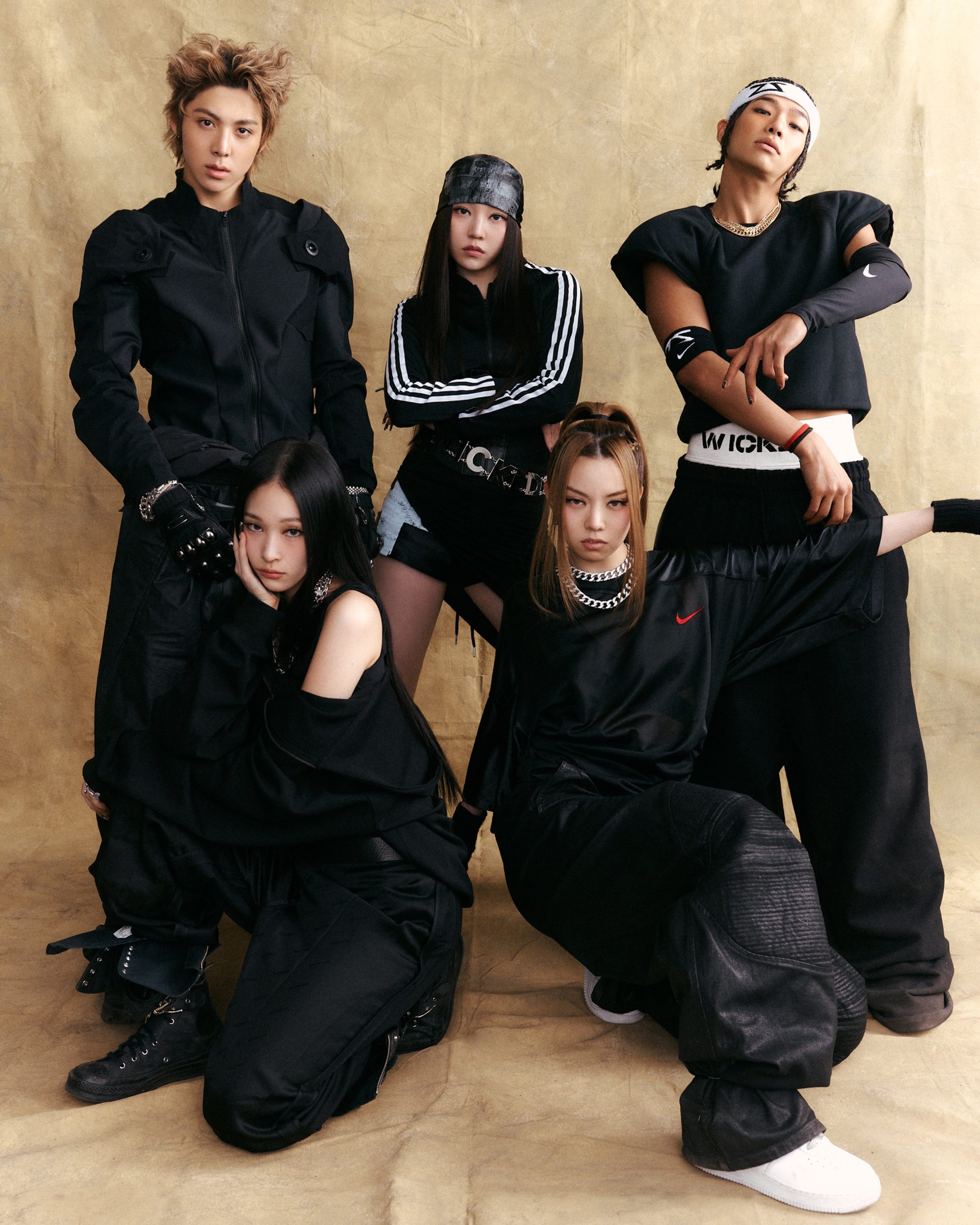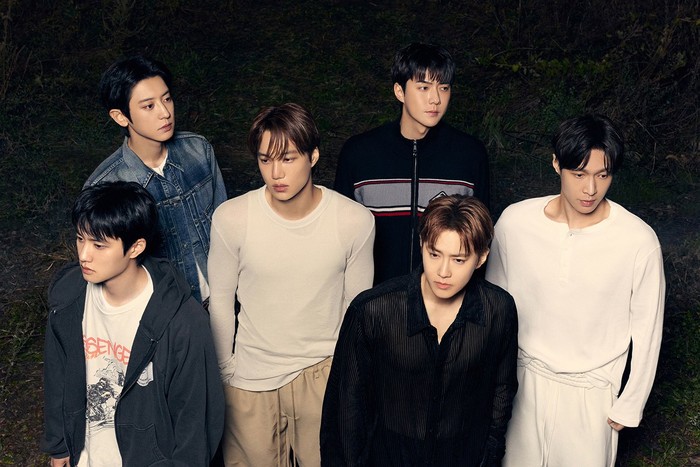Smashing – Since their official debut on June 23, 2025, AllDay Project has ignited a remarkable co‑ed K‑Pop revolution that fans across the globe didn’t anticipate. The group’s debut has stirred excitement across social media, quickly pushing their single “FAMOUS” onto the charts. Fans are buzzing about the dynamic between male and female members, reigniting interest in co-ed group formats previously dormant in K‑Pop. Drawing comparisons to iconic mixed groups like KARD and S#ARP, AllDay Project has captured attention not only in Korea but internationally. As Teddy Park’s first co-ed group under The Black Label, their arrival signifies an exciting new chapter in the K‑Pop industry.
The Black Label Breaks New Ground
The Black Label’s creative ambition became evident when producer Teddy Park introduced AllDay Project, comprised of three female and two male members. Annie, a global art student and chaebol heir, has particularly piqued interest. Additionally, Youngseo’s history as a trainee who faced late debut fears has drawn considerable attention. Bailey’s background as a choreographer also contributes significantly to their stage presence. By entering co-ed territory, The Black Label is making a strategic move, aiming to redefine idol production. Much like Western groups such as Black Eyed Peas, their dynamic promises fresh energy for global audiences.
Explosive Chart Performance
Remarkably, within hours of their debut music video, “FAMOUS” achieved a real-time all‑kill on Melon’s charts, swiftly rising to No. 1. Their follow-up track, “WICKED,” also entered the Top 40. Moreover, streaming engagement surged on Spotify across various regions, earning a spot on Billboard’s Global 200. Media outlets have praised their urban-dance style, adding to fans’ anticipation for upcoming comebacks. These early successes establish a strong foundation for sustained popularity and impact.
Fan Culture and “Chan‑Cat” Shipping
Interestingly, fans have introduced new shipping trends, particularly pairing members Woochan and Youngseo in what they affectionately call “Chan‑Cat.” This fresh pairing highlights intriguing male-female chemistry and encourages flexible idol relationships. Fan forums and social media have become hotbeds for creative content, including fan edits, memes, and celebratory events. Unlike traditional rigid fandom roles, this co-ed dynamic sparks positive dialogue, challenging conventional norms in idol shipping.
Controversy and Cultural Conversations
However, controversy surfaced even before their official debut. For instance, Tarzzan’s braided hairstyle ignited heated debates around cultural appropriation, leading to backlash under the hashtag #TARZZAN_OUT. Similarly, Annie’s affluent chaebol background has prompted criticism regarding nepotism. These discussions highlight broader concerns about cultural sensitivity within the K‑Pop industry. Despite demands for responses or apologies, The Black Label has thus far remained quiet, prompting further speculation and debate.
Co‑Ed Groups: A New Era?
Encouragingly, AllDay Project’s debut has reenergized veteran co-ed group KARD, who announced their first domestic concert in five years. Consequently, this renewed focus suggests a potential revival for mixed groups in K‑Pop, reminiscent of their prominence in the early 2000s. Co-ed groups offer unique possibilities, blending voices and visuals creatively. As producers and fans alike reconsider this format, global audiences eagerly await its further development. Could this signify a major shift in the industry’s future?
What Makes AllDay Project Different
Distinctively, AllDay Project’s urban and edgy visual direction sets them apart from other groups. Their music blends hip-hop, dance, and traditional K‑Pop in exciting, unexpected ways. Annie’s international education and artistic versatility further enhance their appeal. Bailey’s choreography skills add another layer of intrigue and engagement. This group’s clear branding as a “limitless creative project” drives fan content creation, from dance covers to reaction videos. Such distinctive qualities raise questions about longevity but also build undeniable excitement.
Where It’s Heading from Here
Looking ahead, fans anticipate sophomore releases and potential global collaborations. Innovative digital approaches such as augmented reality or virtual fan events are also expected. Addressing earlier controversies through meaningful cultural dialogues could further strengthen their position. Additionally, AllDay Project’s influence might encourage marketing partnerships across fashion, technology, and entertainment industries. The buzz surrounding the group indicates significant potential to reshape K‑Pop’s future landscape.
Final Thoughts on This Revolution
Ultimately, AllDay Project’s debut prompts essential conversations about gender dynamics within K‑Pop. By mixing traditional fandom roles and embracing diversity, they have reignited enthusiasm for co‑ed groups. Their early successes demonstrate that calculated risks in creativity can yield significant media returns. Whether or not their initial impact leads to lasting industry-wide changes, AllDay Project’s arrival undeniably represents an exciting turning point in K‑Pop history.





